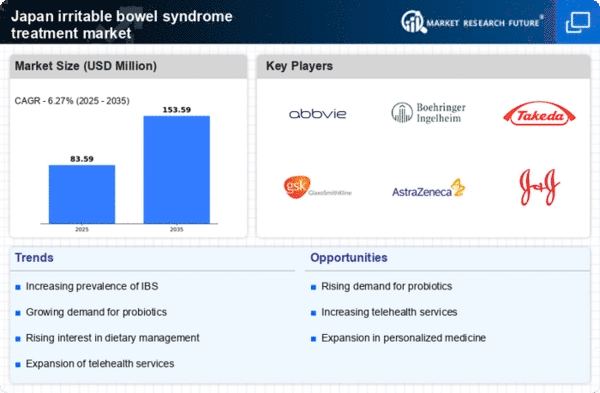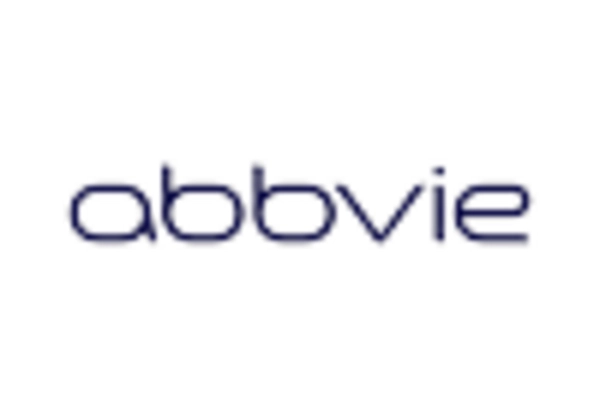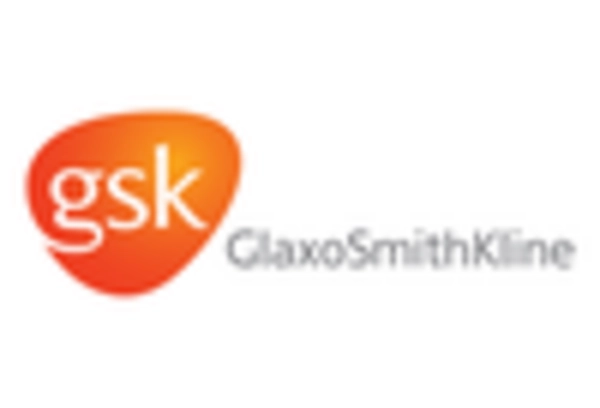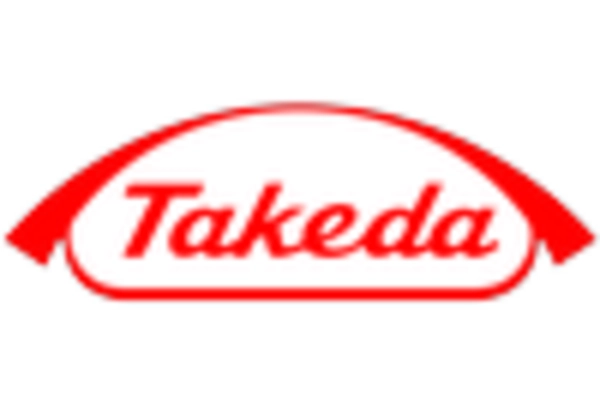Rising Prevalence of IBS
The increasing prevalence of irritable bowel syndrome (IBS) in Japan is a significant driver for the irritable bowel-syndrome-treatment market. Recent studies indicate that approximately 10-15% of the Japanese population experiences IBS symptoms, leading to a growing demand for effective treatment options. This rise in prevalence is attributed to various factors, including dietary habits, stress levels, and lifestyle changes. As awareness of IBS increases, more individuals seek medical advice and treatment, thereby expanding the market. The healthcare system in Japan is adapting to this trend by incorporating more specialized services and therapies aimed at managing IBS, which further stimulates market growth. Consequently, the irritable bowel-syndrome-treatment market is likely to see a surge in both pharmaceutical and non-pharmaceutical interventions to cater to this expanding patient base.
Increased Awareness and Education
The growing awareness and education surrounding IBS in Japan are crucial drivers for the irritable bowel-syndrome-treatment market. Healthcare providers are increasingly focusing on educating patients about the condition, its symptoms, and available treatment options. Public health campaigns and initiatives by medical associations aim to reduce stigma and encourage individuals to seek help. This heightened awareness is leading to earlier diagnosis and treatment, which is essential for effective management of IBS. Furthermore, educational programs are being integrated into medical curricula, ensuring that future healthcare professionals are well-equipped to address IBS. As more individuals become informed about their condition, the demand for treatment options is expected to rise, thereby positively impacting the irritable bowel-syndrome-treatment market.
Integration of Complementary Therapies
The integration of complementary therapies into conventional treatment plans is emerging as a notable driver for the irritable bowel-syndrome-treatment market. In Japan, patients are increasingly seeking holistic approaches to manage their IBS symptoms, including dietary modifications, acupuncture, and mindfulness practices. This trend reflects a broader shift towards personalized healthcare, where patients are encouraged to explore various treatment modalities. Healthcare providers are recognizing the potential benefits of combining traditional medical treatments with complementary therapies, leading to more comprehensive care strategies. As a result, the irritable bowel-syndrome-treatment market is likely to expand to include a wider range of therapeutic options, catering to the diverse preferences of patients seeking relief from their symptoms.
Advancements in Pharmaceutical Solutions
Innovations in pharmaceutical treatments for IBS are propelling the irritable bowel-syndrome-treatment market forward. Recent developments in drug formulations and delivery mechanisms have led to the introduction of new medications that target specific symptoms of IBS, such as abdominal pain and bloating. For instance, medications like linaclotide and lubiprostone have gained traction in Japan, providing patients with more effective options. The Japanese regulatory environment supports the rapid approval of new therapies, which encourages pharmaceutical companies to invest in research and development. As a result, the market is witnessing a diversification of treatment options, which is likely to enhance patient adherence and satisfaction. This trend indicates a robust future for the irritable bowel-syndrome-treatment market as more effective solutions become available to address the diverse needs of patients.
Technological Innovations in Treatment Delivery
Technological advancements in treatment delivery methods are significantly influencing the irritable bowel-syndrome-treatment market. Innovations such as telemedicine and mobile health applications are transforming how patients access care and manage their symptoms. In Japan, the adoption of telehealth services has increased, allowing patients to consult with healthcare professionals remotely. This is particularly beneficial for those who may have difficulty accessing traditional healthcare settings. Additionally, mobile applications that track symptoms and provide personalized recommendations are gaining popularity among IBS patients. These technologies not only enhance patient engagement but also facilitate better communication between patients and providers. As these technological solutions continue to evolve, they are likely to play a pivotal role in shaping the future of the irritable bowel-syndrome-treatment market.

















